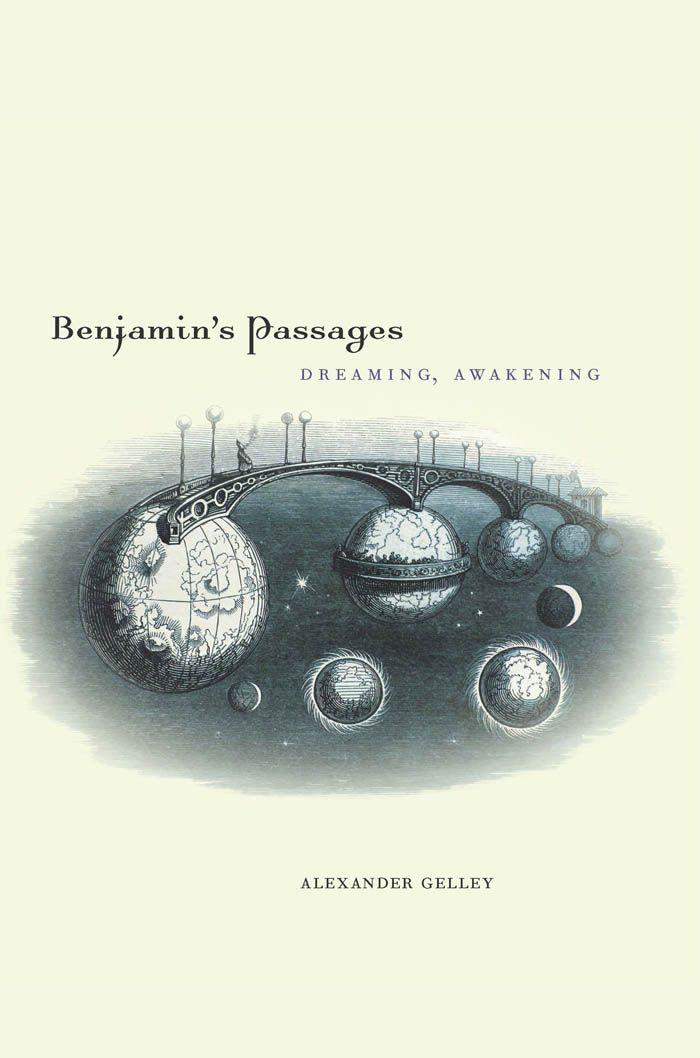Benjamin's Passages
Dreaming, Awakening

This book can be opened with

In transposing the Freudian dream work from the individual subject to the collective, Walter Benjamin projected a “macroscosmic journey” of the individual sleeper to “the dreaming collective, which, through the arcades, communes with its own insides.” Benjamin’s effort to transpose the dream phenomenon to the history of a collective remained fragmentary, though it underlies the principle of retrograde temporality, which, it is argued, is central to his idea of history.
The “passages” are not just the Paris arcades: They refer also to Benjamin’s effort to negotiate the labyrinth of his work and thought. Gelley works through many of Benjamin’s later works and examines important critical questions: the interplay of aesthetics and politics, the genre of The Arcades Project, citation, language, messianism, aura, and the motifs of memory, the crowd, and awakening.
For Benjamin, memory is not only antiquarian; it functions as a solicitation, a call to a collectivity to come. Gelley reads this call in the motif of awakening, which conveys a qualified but crucial performative intention of Benjamin’s undertaking.
“Alex Gelley’s interpretation of the Passagenwerk is the work of a lifetime concentrated as a gem. While commentaries were multiplying at exponential rate, he kept meditating and researching. The result is a unique resurrection of Benjamin’s practice of “puzzling the world together”, around the antithetic themes of liberating the powers of dream and anticipating the day of awakening. Whoever thought to have understood Benjamin should pause and read Gelley first.”
Alexander Gelley’s book offers an extremely subtle and persuasive reading of Benjamin’s later work, fully attentive to its fragmentary nature but also deftly linking it to all of the writer’s continuing philosophical preoccupations. The study does not situate Benjamin narrowly within his own historical time, but neither does it fold him into a single later view. What Gelley traces for us are the work’s own invitations to its afterlife, and in this context he writes strikingly of Benjamin’s dream of ‘situating phenomena in the light of their historical lapse’. Benjamin speaks of ‘the whole contradictory foundation’ of his convictions, and this book allows us to begin to grasp that foundation without betraying any of its contradictions.
A major achievement, 'Benjamin’s Passages’ is an invaluable contribution to Benjamin studies and all the fields connected with it.

